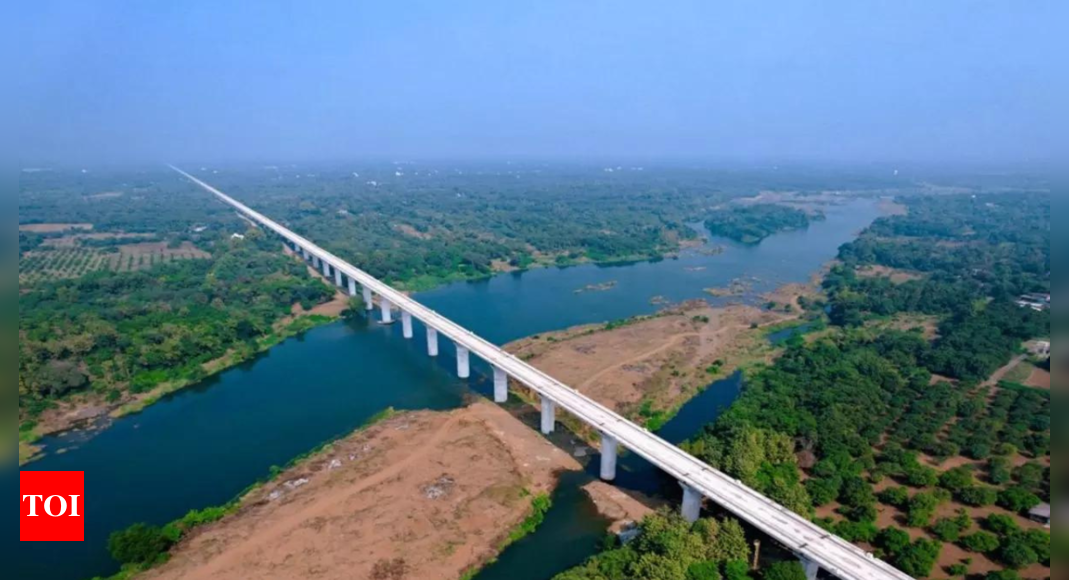In a remarkable initiative, the Ahmedabad-Mumbai Bullet Train project is set to install 28 seismometers for an ‘Early Earthquake Detection System’. This innovative system, based on Japanese Shinkansen technology, aims to ensure the safety of passengers and infrastructure during earthquakes. By detecting earthquake-induced tremors through primary waves, the seismometers will enable an automatic power shutdown, activating emergency brakes and stopping the trains running in the affected areas. Out of the 28 seismometers, 22 will be installed along the alignment of the project, with 8 in Maharashtra and 14 in Gujarat. The remaining 6 seismometers will be placed in earthquake-prone areas of Khed, Ratnagiri, Latur, Pangri in Maharashtra, and Adesar and Old Bhuj in Gujarat. These areas have been carefully surveyed by Japanese experts and are known to have experienced earthquakes of magnitudes greater than 5.5 in the past 100 years.
As the construction of rail lines and stations for the bullet train project progresses, there is a growing concern regarding the delay of bids from Japanese train manufacturers. The Indian Railways plans to run the first train in August 2026, and this delay may impact the phased implementation of the project. The revised cost of the 508-km project is also expected to increase significantly, potentially touching Rs 2 lakh crore due to these delays and cost escalations. As per the loan conditions set by the Japan International Cooperation Agency (JICA), only Japanese manufacturers like Kawasaki and Hitachi can participate in the bidding process for rolling stock or trains. The delay in the submission of bids by these manufacturers has prompted an addendum extending the proposal submission deadline. In response to the request from Hitachi-Kawasaki, the deadline has been extended from December 29, 2023 to February 29, 2024.
The progress report for the project indicates that until December, the overall physical progress achieved was 39.1%, slightly behind the 44% target. The financial progress stood at 44.4%, with a total expenditure of Rs 53,592 crore incurred by the end of December. These statistics highlight the need to address the delays and ensure a smooth and timely implementation of the bullet train project.
In conclusion, the installation of the ‘Early Earthquake Detection System’ with the deployment of 28 seismometers along the Ahmedabad-Mumbai Bullet Train project is a significant step towards enhancing safety during seismic events. However, the concerns regarding the delay in bids from Japanese train manufacturers must be resolved promptly to avoid further setbacks and cost escalations. The successful implementation of this ambitious project will not only revolutionize train travel in India but also serve as a testament to the collaborative efforts between India and Japan in developing state-of-the-art infrastructure.











